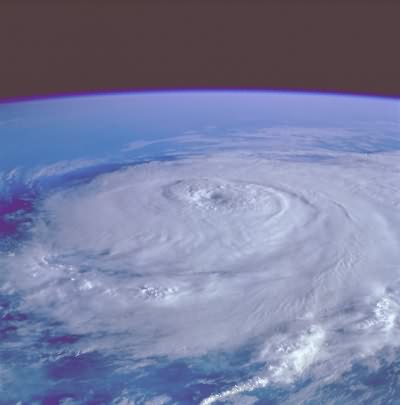 Atlantic
Hurricane
Atlantic
Hurricane
Principles of
Earth & Environmental Systems II
ENVI.2020
|
|
Principles of
Earth & Environmental Systems II |
| Course Home | Syllabus | Schedule | Supplemental Materials | Links |
|
Syllabus |
Course Description: Principles of Earth and Environmental Systems is a two semester sequence which uses a systems approach to investigate and understand the relationships between the atmosphere, geosphere, hydrosphere and biosphere. Principles of Earth and Environmental Systems II deals with the atmosphere, oceans, ecosystems, and the human impact on the environment. Communication: For all class-related e-mails I will use your UMass Lowell Student e-mail account. Such e-mails may include, but are not limited to, change in homework assignments and due dates, changes in exam dates, changes in class schedule, etc. It is your responsibility to monitor your UMass Lowell Student e-mail account on a regular basis. “I didn’t know because I don’t ever look at my student account” is NOT an acceptable excuse for not knowing about important changes in the course. General Course Information: Attendance is mandatory for all exams. Except in the case of personal illness or a death in the immediate family, both of which must be substantiated, the student MUST seek prior approval from the instructor for an exam absence. Ski trips, hunting, extended weekends, two exams on the same day, etc. are NOT legitimate excuses for missing an exam. Any special pleading must be done before the exam, not after. Any un-excused absence will result in a grade of zero for the exam which is missed. A number of question/problem sets will be assigned. These will NOT be collected. The question/problem sets should be completed by the due date listed on the Course Schedule. The instructor will answer questions about the problems after the due date. Similar questions/problems can be expected on exams so it would be a really good idea to do the assignments in a timely manner, i.e., before the night before the exam.. Academic Integrity: The student's attention is called to the definitions and regulations regarding cheating and plagiarism. The instructor shall assign a grade of zero to any portion of an exam on which he determines cheating has occurred. Likewise a grade of zero will be assigned to any portion of a laboratory exercise or homework problem that has been plagiarized. Cell phones and other mobile devices cannot be used during class time. If you do use a device during class time it is subject to confiscation.
Specific Course Goals: At the conclusion of this course, students should be able to show that they have realized the following course goals:
Course Topics: Atmosphere Atmospheric structure and radiation Pressure and temperature in the atmosphere Water in the atmosphere Insolation and Air Temperature Small-scale circulation Large-scale circulation Convection Air masses, fronts, and cyclones Atmosphere – Anthropogenic Impacts: Atmospheric pollution - types, smogs, meteorological factors Atmospheric pollution - laws and control Atmospheric pollution - climate change Oceans: Ocean sediments Oceanographic measurements Physical properties of seawater The heat budget Oceanic circulation Waves Tides Coastal processes Marginal semi-enclosed seas and basins Biological Interactions: Ecological principles Human ecology
Textbook: Skinner and Murck (2011) The Blue Planet: An Introduction to Earth System Science, 3rd Edition. John Wiley & Sons. Grading Policy: Your grade will be determined as follows: Two Hour Exams @ 22.5% each = 45% 10 Quizzes @ 2% each = 20% Final Exam = 35% Your grade is solely determined on the basis of the above evaluations. There is no opportunity to do "extra work" in order to improve your grade. The Hour Exams are scheduled for February 24 and April 7. The Hour Exams will not be cumulative but the Final Exam will be inclusive. My grading rubric is as follows:
Contacting the Instructor: The instructor's Office Hours are listed on his home page (http://faculty.uml.edu/nelson_eby/). The instructor's office is Room 302b (or OLN201) in the Olney building. Additional hours are available by appointment. If you have problems, or want to make an appointment, you can reach me either by telephone, 978-934-3907 (I have voice mail) or better yet by e-mail, Nelson_Eby@uml.edu. I log on to my e-mail account when I come in each day and thus will get your message first thing in the morning. |
|||||||||||||||||||||||||